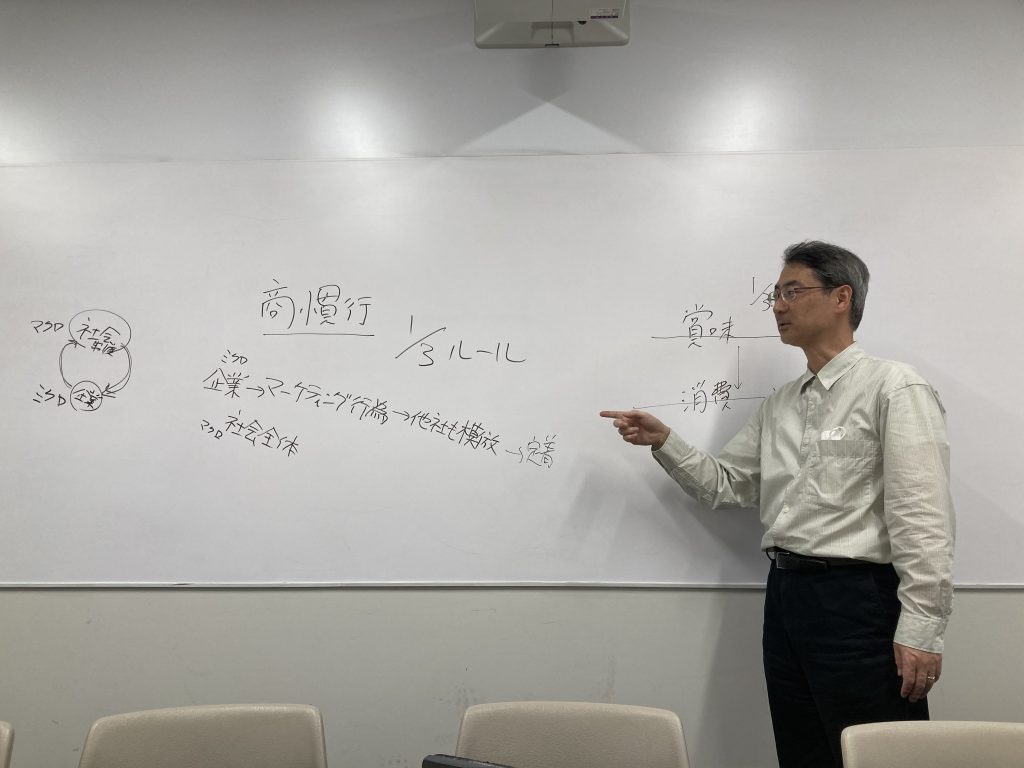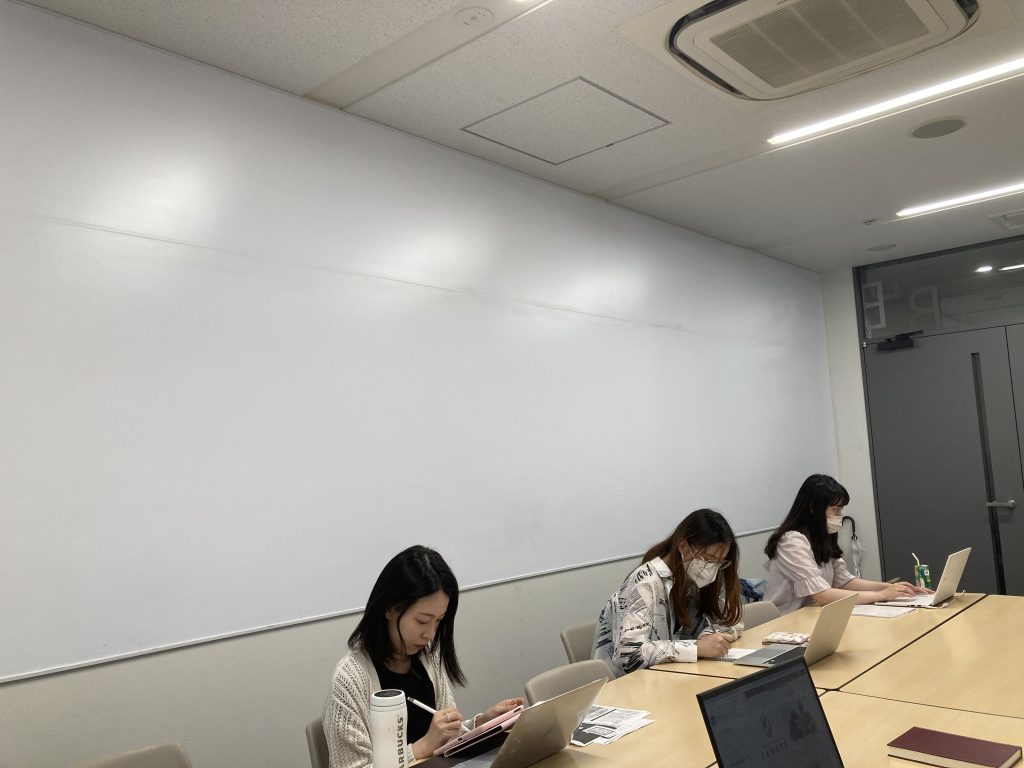Details of the Initiative
Retail and Wholesale Management Theory in the Master’s Program of the Graduate School of Commerce (Professor Kazuo Kikuchi) provides classes on retail marketing and distribution. Let us take a look at a class on a business practice called “one-third rule of food distribution.” This is a business practice between food manufacturers, wholesalers, and retailers. In the 1990s, Japanese retailers approached food manufacturers and wholesalers to emphasize the “freshness” of products to consumers, which resulted in the establishment of this business practice in the food industry. Processed foods have a best-before period, which indicates a period when the food can be palatably consumed. Under the practice, wholesalers must deliver food to retailers before this period goes down to a third. For example, if the best-before period of a product is six months, wholesalers must deliver the product to retailers two months before the period expires. If they cannot deliver the product in that way, the product will be returned or discarded. This business practice is now considered problematic as one of the factors of food waste, and efforts are being made to improve this. In other words, macroscopic social practice (institution) is generated by the spread of microscopic marketing actions of companies, but once an institution is generated, companies are constrained within the institution. This mechanism is called the micro-macro link in marketing.



